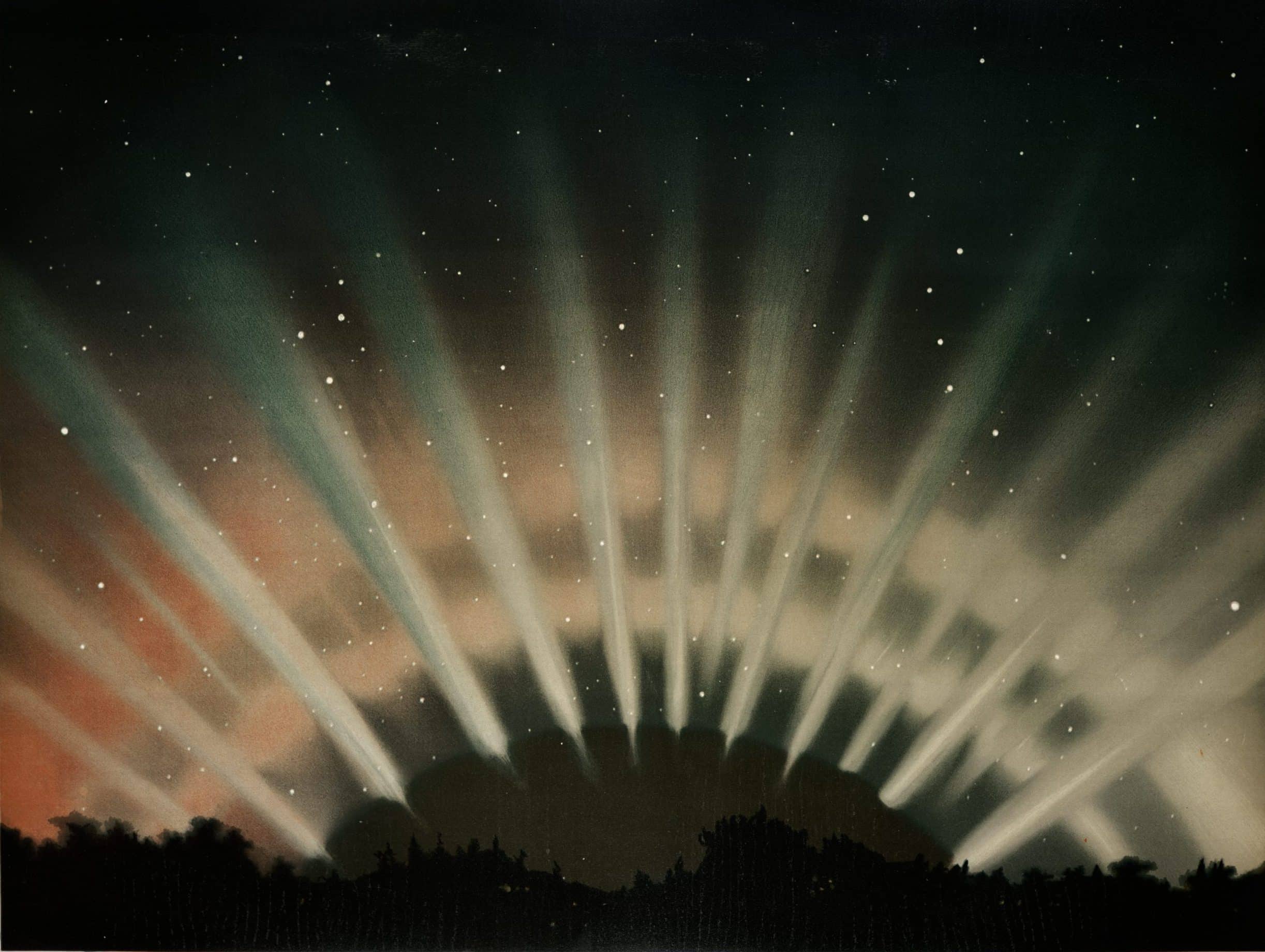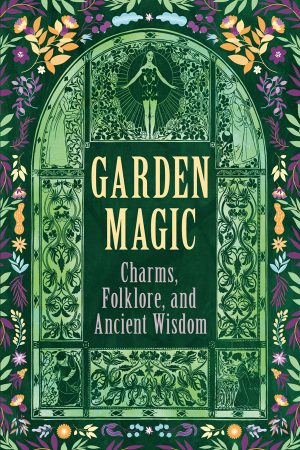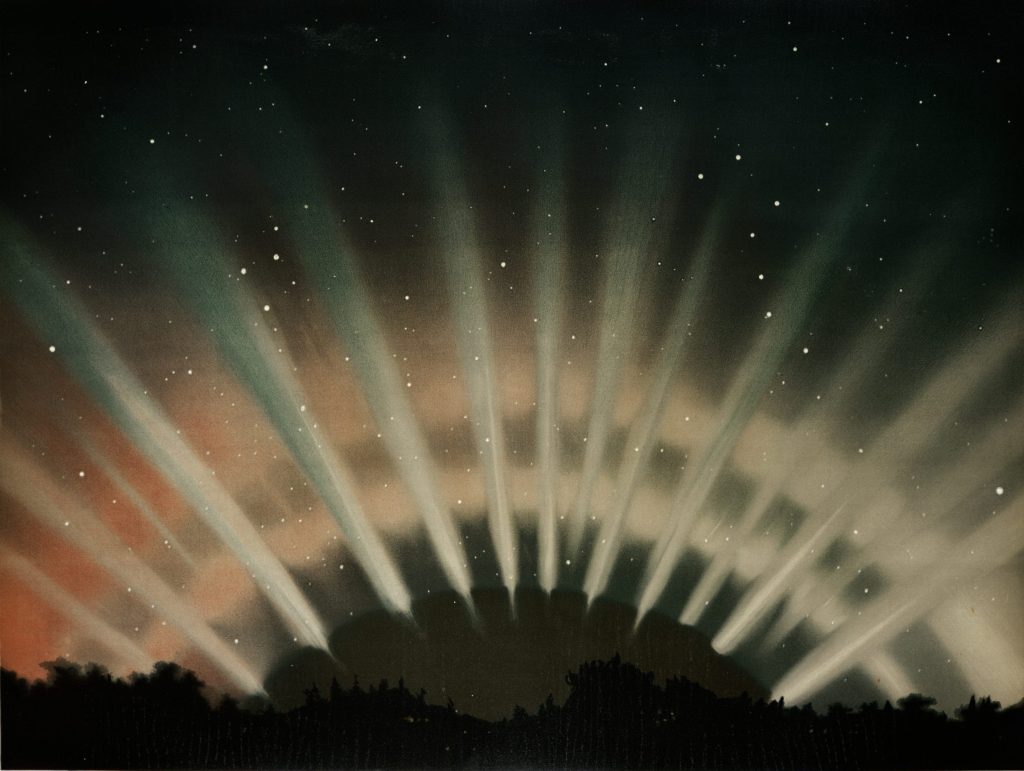If you foster a deep connection with the elements, you’re sure to have a better understanding of the natural world and your garden will benefit.
Learn the importance of each of these elements and how to harness their power in your work in the garden.
Discover the enchanting history of the world’s most magical plants and learn to nurture your own garden with the power of the four elements in this spellbinding gardening companion.
The Four Elements
The most important thing any gardener is growing is soil, and this should be the basis for your practice and work with the elements. Well-nourished earth will provide nutrients, deter pests, and create strong plants. Water is the all-powerful life force; nothing can live without it. Fire is a celestial, life-giving light, making things fruitful. Air, which we include here in tandem with ether or spirit, is the energy flowing through all things.
Earth
Now the basis and foundation of all the elements is the earth; for that is the object, subject, and receptacle of all celestial rays and influences: in it are contained the seeds, and seminal virtues of all things: and therefore, it is said to be animal, vegetable, and mineral. It, being made fruitful by the other elements and the heavens, brings forth all things of itself. It receives the abundance of all things, and is, as it were, the first fountain from whence all things spring—it is the centre, foundation, and mother of all things.
Take as much of it as you please, separated, washed, depurated, and subtilised, and if you let it lie in the open air a little while, it will, being full and abounding with heavenly virtues, of itself bring forth plants, worms, and other living things; also stones, and bright sparks of metals. In it are great secrets: if, at any time it shall be purified, by the help of fire, and reduced into its simple nature by a convenient washing, it is the first matter of our creation, and the truest medicine that can restore and preserve us. (Barrett, 1896)
Certain stones have a magical efficacy, which is determined in each case by the shape of the stone. A stone in the shape of a pig, of a breadfruit, of a yam, was a most valuable find. No garden was planted without the stones which were to increase the crop. (Lang, 1887)
The quartz pebble, which is so common in the beds of rivers and also in tillage fields, is popularly known by the name of ‘thunder’, or rather ‘thunner staane’, and is believed to have dropped from the clouds during a thunder storm (Hardy, 1892)
The collection and use of the ashes by the worshippers point to the fact that we have here a sacrifice of the god of fertility. Originally the sprinkling of the ashes on fields or animals or in running water was a fertility charm. (Murray, 1921)
If it does not freeze on the tenth of March a fertile year may be expected. (Wright, 1913)
Water
There is so great a necessity of water, that without it nothing can live—no herb no plant whatsoever without the moistening of water, can bring forth; in it is the seminary virtue of all things, especially of animals, whose seed is manifestly waterish. The seeds, also, of trees and plants, although they are earthy, must, notwithstanding, of necessity be rotted in water before they can be fruitful; whether they be imbibed with the moisture of the earth, or with dew, or rain, or any other water that is on purpose put to them. (Barrett, 1896)
Water is an essential of life, and in most countries the supply of it depends upon showers. Without rain vegetation withers, animals and men languish and die. Hence the rain-maker is a very important personage; and often a special class of magicians exists for the purpose of regulating the heavenly water-supply.
Women are sometimes supposed to be able to make rain by ploughing, or pretending to plough. Thus the Pshaws and Chewsurs of the Caucasus have a ceremony called ‘ploughing the rain’, which they observe in time of drought. Girls yoke themselves to a plough and drag it into a river, wading in the water up to their girdles. In the same circumstances Armenian girls and women do the same.
The intimate association of frogs and toads with water has earned for these creatures a widespread reputation as custodians of rain; and hence they often play a part in charms designed to draw needed showers from the sky. Some of the Indians of the Orinoco held the toad to be the god or lord of the waters, and for that reason feared to kill the creature. It is said that the Aymara Indians often make little images of frogs and other aquatic animals and place them on the tops of the hills as a means of bringing down rain. In order to procure rain people in the Central Provinces of India will tie a frog to a rod covered with green leaves and branches of the nîm tree (Azadirachta Indica) and carry it from door to door singing:
Send soon, O frog, the jewel of water!
And ripen the wheat and millet in the field.
Stones are often supposed to possess the property of bringing on rain, provided they be dipped in water or sprinkled with it.
When the Chams of Cochinchina are sowing their dry rice fields and desire that no shower should fall, they eat their rice dry in order to prevent rain from spoiling the crop. (Frazer, 1890)
Fire
Fire, in all things, and through all things, comes and goes away bright; it is in all things bright, and at the same time occult and unknown. When it is by itself (no other matter coming to it, in which it should manifest its proper action) it is boundless and invisible; of itself sufficient for every action that is proper to it—itself is one, and penetrates through all things; also spread abroad in the heavens, and shining. But in the infernal place, straitened, dark, and tormenting; and in the midway it partakes of both. It is in stones, and is drawn out by the stroke of the steel; it is in earth, and causes it, after digging up, to smoke; it is in water, and heats springs and wells; it is in the depths of the sea, and causes it, being tossed with the winds, to be hot; it is in the air, and makes it (as we often see) to burn. And all animals, and all living things whatsoever, as also vegetables are preserved by heat—and everything that lives, lives by reason of the enclosed heat. The properties of the fire that is above, are heat, making all things fruitful; and a celestial light, giving life to all things. The properties of the infernal fire are a parching heat, consuming all things; and darkness; making all things barren. The celestial and bright fire drives away spirits of darkness—also, this our fire, made with wood, drives away the same. (Barrett, 1896)
The Matabeles light huge fires to the windward of their gardens, ‘their idea being that the smoke, by passing over the crops, will assist the ripening of them’. Among the Zulus also ‘medicine is burned on a fire placed to windward of the garden, the fumigation which the plants in consequence receive being held to improve the crop’.
Again, the idea of our European peasants that the corn will grow well as far as the blaze of the bonfire is visible, may be interpreted as a remnant of the belief in the quickening and fertilising power of the bonfires. The same belief, it may be argued, reappears in the notion that embers taken from the bonfires and inserted in the fields will promote the growth of the crops, and it may be thought to underlie the customs of sowing flax-seed in the direction in which the flames blow, of mixing the ashes of the bonfire with the seed-corn at sowing, of scattering the ashes by themselves over the field to fertilise it, and of incorporating a piece of the Yule log in the plough to make the seeds thrive. (Frazer, 1890)
As the magician thinks he can make rain, so he fancies he can cause the Sun to shine, and can hasten or stay its going down. At an eclipse the Ojebways used to imagine that the Sun was being extinguished. So they shot fire-tipped arrows in the air, hoping thus to rekindle his expiring light. The Sencis of Peru also shot burning arrows at the Sun during an eclipse, but apparently they did this not so much to relight his lamp as to drive away a savage beast with which they supposed him to be struggling. After the Autumnal Equinox the ancient Egyptians held a festival called ‘the nativity of the Sun’s walking-stick’, because, as the luminary declined daily in the sky, and his light and heat diminished, he was supposed to need a staff on which to lean. (Frazer, 1890)
Air
This is a vital spirit passing through all beings—giving life and subsistence to all things—moving and filling all things. Hence it is that the Hebrew doctors reckon it not amongst the elements; but count it as a medium, or glue, joining things together, and as the resounding spirit of the world’s instrument. It immediately receives into itself the influence of all celestial bodies, and then communicates them to the other elements, as also to all mixed bodies. Also, it receives into itself, as if it were a divine looking-glass, the species of all things, as well natural as artificial; as also of all manner of speeches, and retains them; and carrying them with it, and entering into the bodies of men, and other animals, through their pores, makes an impression upon them, as well when they are asleep as when they are awake, and affords matter for divers strange dreams and divinations. Hence, they say, it is that a man, passing by a place where a man was slain, or the carcass newly hid, is moved with fear and dread; because the air, in that place, being full of the dreadful species of man, slaughter, doth, being breathed in, move and trouble the spirit of the man with the like species; whence it is that he becomes afraid. For everything that makes a sudden impression astonishes Nature. Whence it is that many philosophers were of opinion, that air is the cause of dreams, and of many other impressions of the mind, through the prolonging of images, or similitudes, or species (which proceed from things and speeches, multiplied in the very air), until they come to the senses, and then to the phantasy and soul of him that receives them; which, being freed from cares, and no way hindered, expecting to meet such kind of species, is informed by them. (Barrett, 1896)
Once more, the magician can make the wind to blow or to be still. Fuegian wizards throw shells against the wind to make it drop. The natives of the island of Bibili, off New Guinea, are reputed to make wind by blowing with their mouths. In stormy weather the Bogadjim people say, ‘The Bibili folk are at it again, blowing away’. Another way of making wind which is practised in New Guinea is to strike a ‘wind-stone’ lightly with a stick; to strike it hard would bring on a hurricane. So in Scotland witches used to raise the wind by dipping a rag in water and beating it thrice on a stone, saying:
I knock this rag upon this stone
To raise the wind in the devil’s name,
It shall not lie till I please again. (Frazer, 1890)
In our new Garden Magic grimoire, you can discover the beautiful folkloric history of workings with the elements in our gardens, for promoting the health of our plants and for spellwork.
To garden is to fall in rhythm with the Earth’s elements, to step outside the bustle of everyday life, and enter a world where time slows and the senses awaken.



